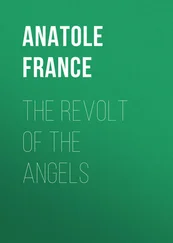Yukio Mishima - The Decay Of The Angel
Здесь есть возможность читать онлайн «Yukio Mishima - The Decay Of The Angel» весь текст электронной книги совершенно бесплатно (целиком полную версию без сокращений). В некоторых случаях можно слушать аудио, скачать через торрент в формате fb2 и присутствует краткое содержание. Год выпуска: 2010, Издательство: CCV Digital, Жанр: Старинная литература, на английском языке. Описание произведения, (предисловие) а так же отзывы посетителей доступны на портале библиотеки ЛибКат.
- Название:The Decay Of The Angel
- Автор:
- Издательство:CCV Digital
- Жанр:
- Год:2010
- ISBN:нет данных
- Рейтинг книги:5 / 5. Голосов: 1
-
Избранное:Добавить в избранное
- Отзывы:
-
Ваша оценка:
- 100
- 1
- 2
- 3
- 4
- 5
The Decay Of The Angel: краткое содержание, описание и аннотация
Предлагаем к чтению аннотацию, описание, краткое содержание или предисловие (зависит от того, что написал сам автор книги «The Decay Of The Angel»). Если вы не нашли необходимую информацию о книге — напишите в комментариях, мы постараемся отыскать её.
The Decay Of The Angel — читать онлайн бесплатно полную книгу (весь текст) целиком
Ниже представлен текст книги, разбитый по страницам. Система сохранения места последней прочитанной страницы, позволяет с удобством читать онлайн бесплатно книгу «The Decay Of The Angel», без необходимости каждый раз заново искать на чём Вы остановились. Поставьте закладку, и сможете в любой момент перейти на страницу, на которой закончили чтение.
Интервал:
Закладка:
The audience was never attentive to this unraveling of genealogies, but that made no difference. Inattention was better than the look of boredom that came with attention.
They had in common an ailment which they wished no one else to know of: old age. Everyone wants to talk about his ailments, and it was clever of them to have found the right listeners. What made them a little different from most couples was that Keiko felt no need for dissimulation or youthful airs.
Fussiness, bias, hostility toward youth, excessive attention to detail, fear of death, indiscriminate irritability, these things Honda and Keiko found in each other, but not in themselves. And when it came to obstinacy, each was provided with a stock that quite balanced the other’s.
They were very tolerant of young women and very intolerant of young men. They loved to complain about the young, and the Zengakuren and the hippies did not escape their lances. Smooth skins, rich black hair, a dreamy, bemused look, all of these were anathema, because attributes of the young. It is a sin for a man to be young, said Keiko, and Honda was pleased.
If old age was the reality most unpleasant to have to accept and most continuously to be lived with, then Honda and Keiko had each made the other a refuge from the reality. Their intimacy was not juxtaposition but a brushing past in the rush for a refuge. They exchanged empty houses and hurried to lock the doors behind them. Alone inside the other, each of them would breathe easily.
Keiko thought of her friendship with Honda as faithful adherence to Rié’s last testament. As she lay dying, Rié had taken Keiko’s hand and beseeched her to look after Honda. She thus saw to her husband’s future in the most sagacious manner.
One fruit of the union had been a trip to Europe the year before. Keiko became a substitute for Rié, who had obstinately refused to go. Rié had loathed the thought of travel abroad and, each time he had suggested it, had asked Keiko to go in her place. She knew perfectly well that her husband did not like to travel with her.
In the winter Honda and Keiko went to Venice and Bologna. The cold was a bit trying, but they found the quiet and decay of hibernal Venice enormously to their liking. There were no tourists, the freezing gondoliers had no business, bridges would emerge one after another like ashes of ruined dreams. In Venice was the end at its most beautiful, beauty being gnawed to a skeleton by sea and factory. Honda caught cold and ran a high fever. The swiftness with which Keiko found a doctor who could speak English, the thoroughness of her ministrations, made Honda see that a companion in old age is a necessity.
On the morning his fever abated, his gratitude found expression in boyish embarrassment. “All this gentleness and maternal affection. I can see why the girls love you.”
“The two are not the same at all.” In fine spirits, Keiko feigned anger. “I am only kind to friends. To be liked by women I have to be cruel. If the girl I liked best were running a fever like this, I’d have to throw over all my worries and run out on her. I’d rather die than have the sort of arrangement most of them do, living together as if they were husband and wife and taking care of each other in old age. There are plenty of haunted houses where mannish women are living with shrinking maidens of dreadful fidelity. Mushrooms grow in the dampness and that is what they feed on, and they spin soft cobwebs and sleep in them in each other’s arms. The mannish woman is always a worker, and so there they are cheek to cheek, figuring out their taxes. No, it’s not the sort of romance I want to be part of.”
Thanks to the ugliness of masculine old age, Honda was an amply qualified sacrifice to this dauntless resolution. Such are the unexpected blessings of old age.
By way of recompense, perhaps, Keiko poked fun at Honda because he carried with him a small wooden cenotaph in Rié’s memory. He had kept it secret; but when his fever went over a hundred he began leaving final instructions, sure that he was in the last throes of pneumonia. One was that she take the cenotaph back to Japan.
“That sort of love makes a person’s flesh crawl,” said Keiko, not at all gently. “She didn’t want to come, and so you dragged her along against her will.”
On the morning of his recovery Honda found the clear sky pleasant, and the tongue-lashing an added pleasure.
It was not clear to him, even after Keiko’s ungentle remarks, what he was asking of Rié. She had been a chaste wife to the end, of that he had no doubt; but there were thorns in all the hollows and on all the corners of the chastity. The sterile Rié made always manifest the reservations Honda himself had about humanity. His unhappiness she made her happiness, and she immediately saw what was behind an occasional show of gentleness and affection. Even farmers were taking their wives abroad these days. Given Honda’s affluence, his proposal was a very modest one. Her refusal was extraordinarily stubborn. Sometimes she even shouted at him.
“What are London and Venice and Paris to me? I’m an old woman, and what do you expect me to get out of it, being dragged around to places like that?”
A young Honda would probably have been put off by such brusqueness; but the old Honda wondered whether his proposal to take his wife abroad had really had in it any sort of affectionate solicitude at all. Rié had become accustomed to look with suspicion upon evidences of affection, and Honda had fallen into a similar habit. Perhaps his travel plans had embodied an urge to play the role of the virtuous husband. Making everything its opposite, making his wife’s resistance into womanly diffidence, her coldness into concealed ardor, he had sought evidence of his own benevolence. And perhaps he wanted to turn the whole voyage into a celebration marking the passage of some stage or other in life. Rié immediately picked out the vulgar motives behind his fabricated benevolence. She pleaded illness, and presently the averred illness became real. She drove herself into physical pain. Travel was out of the question.
Bringing the cenotaph with him was a post-mortem tribute to her honesty. If Rié had seen her husband tucking the cenotaph into his briefcase (the premise was of course a contradiction), how derisively she would have laughed! Today all manner of sentimental affection was permitted to Honda. And the one who permitted it was the new Rié.
On the night of their return to Rome, as if by way of compensation for her services in Venice, Keiko brought to their suite in the Hotel Excelsior a beautiful Sicilian girl she had picked up on the Via Veneto, near the hotel. The two enjoyed themselves the whole night through in Honda’s presence.
Later Keiko said: “Your coughing was wonderful. You weren’t entirely over your cold. You coughed all night, the strangest sort of coughing. I can’t tell you how wonderful it was listening to that funny old cough while I had that marble body to enjoy in the next bed. It was background music better than the best I could have bought. I felt as if I were doing something or other, I don’t quite know what, in a fine, luxurious tomb.”
“You were listening to the skeleton.”
“That’s it. I was between life and death. Their intermediary. But you’re not to say that you weren’t having a good time yourself.” Keiko was quite aware that Honda had come over and felt the girl’s foot.
In the course of the trip Keiko taught Honda how to play cards. Upon their return she invited him to a canasta party. After lunch four tables were put up in the parlor.
With Honda were Keiko and two White Russian women. One was old and the other a portly person in her fifties. It was a gloomy, rainy afternoon. Honda could not understand why Keiko, who was so fond of young girls, should invite only old and aging women to these parties. There were only two men besides Honda, a retired businessman and an elderly teacher of flower-arranging.
Читать дальшеИнтервал:
Закладка:
Похожие книги на «The Decay Of The Angel»
Представляем Вашему вниманию похожие книги на «The Decay Of The Angel» списком для выбора. Мы отобрали схожую по названию и смыслу литературу в надежде предоставить читателям больше вариантов отыскать новые, интересные, ещё непрочитанные произведения.
Обсуждение, отзывы о книге «The Decay Of The Angel» и просто собственные мнения читателей. Оставьте ваши комментарии, напишите, что Вы думаете о произведении, его смысле или главных героях. Укажите что конкретно понравилось, а что нет, и почему Вы так считаете.











